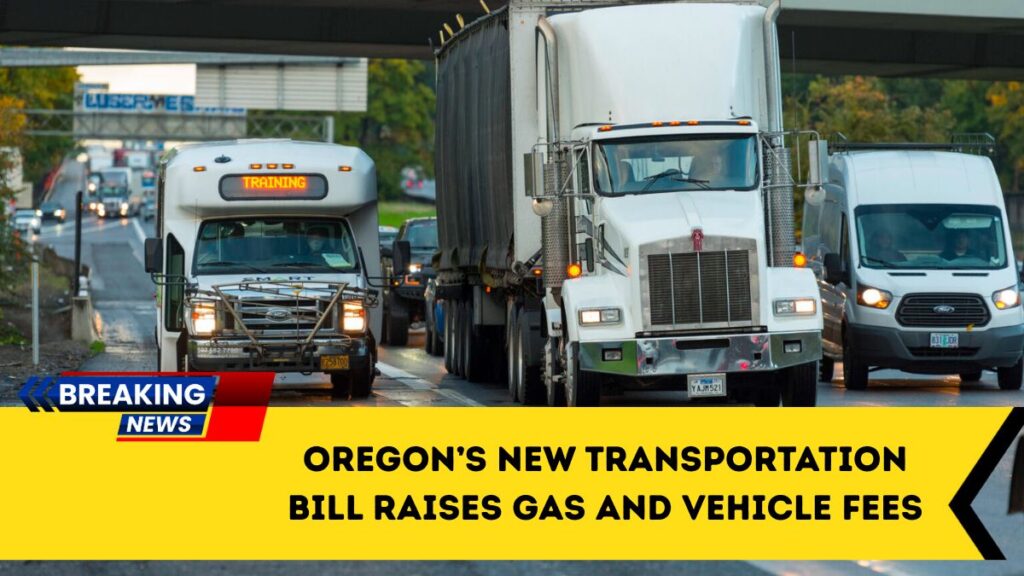Oregon Governor Tina Kotek has officially signed House Bill 3991, an emergency transportation package, into law.
The new bill aims to keep the state’s roads, highways, and public transit systems running safely while preventing layoffs of essential transportation workers.
Governor Kotek signed the bill on November 7, 2025, although the announcement came a few days later. She stated that the new law will help Oregon maintain its transportation network and protect jobs during a difficult financial period.
What the Transportation Bill Does
The new transportation law includes several tax and fee increases designed to raise money for the state’s road and transit maintenance. Here’s a breakdown of the major changes:
| Category | Change Introduced |
|---|---|
| Gas tax | Increased by 6 cents per gallon |
| Vehicle title and registration fees | Increased at the DMV |
| Payroll tax | Increased by 0.1% for the next two years |
| Road usage charge (RUC) | Increased from 2 cents per mile to 2.3 cents per mile |
| Electric vehicle fee option | EV owners can pay a $340 annual fee instead of per-mile charge |
| Total revenue expected | About $4.3 billion over 10 years |
These changes are expected to give the Oregon Department of Transportation (ODOT) the funding it needs to keep the state’s infrastructure in good condition.
The new law also adds accountability rules for ODOT. These include regular performance audits by the Secretary of State and giving the governor more authority to hire or fire the ODOT director when necessary.
How the Bill Passed
The House of Representatives approved the bill on September 1, 2025, and after some delays caused by a senator’s health issues, the Senate passed it on September 29, 2025. The tax changes will take effect on December 31, 2025, which is 91 days after the special session ended.
Although Kotek signed the bill just before the November 12 deadline, critics accused her of delaying the signing to make it harder for opponents to organize a referendum against it.
Political Reactions
Supporters of the bill believe it’s a vital step to protect Oregon’s transportation system and prevent service cuts. They argue the funding will ensure that roads, bridges, and transit routes remain open and safe.
Opponents, mostly from the Republican Party, claim the new taxes and fees are unnecessary and will burden ordinary drivers. They have started a campaign called “No Tax Oregon” to overturn parts of the law through a public referendum.
To qualify for a vote, organizers must collect about 78,000 valid signatures by December 30, 2025. If successful, the gas tax, vehicle fee, and payroll tax increases could be put on the November 2026 ballot for voters to decide.
If enough signatures are gathered, the new taxes will be frozen until voters make their decision.
What Happens Next?
If the law remains in effect, ODOT will start collecting the new taxes at the end of 2025. Electric vehicle owners will have to choose between the new per-mile rate or the $340 annual fee.
Over time, all drivers will be included in the road usage charge system, which will track mileage rather than fuel use.
Governor Kotek has defended the law, saying that reversing it would create another transportation crisis and could lead to job losses and station closures.
Oregon’s new transportation law is one of the most important moves in the state’s recent history. It raises billions of dollars for highways, bridges, and public transit while keeping thousands of transportation workers employed.
However, it also brings higher costs for everyday drivers through increased gas taxes and fees. Whether Oregonians support or reject the law in the future, House Bill 3991 will have a lasting impact on how the state funds and maintains its transportation system.
